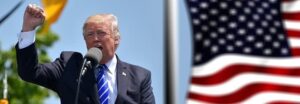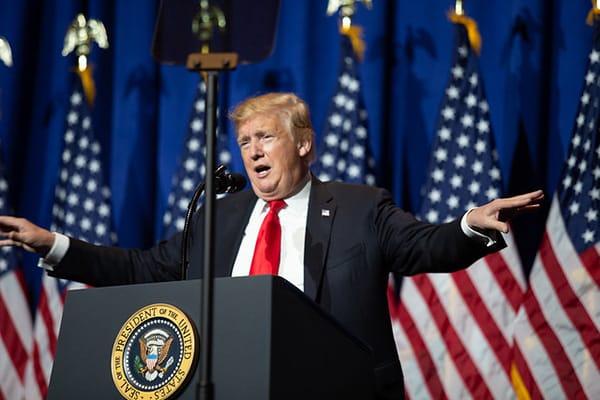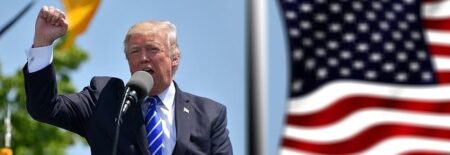Unveiling the Role of Economic Warfare in U.S. Foreign Policy: A Historical and Contemporary Analysis
Understanding the Strategic Drivers Behind U.S. Economic Warfare
For decades, the United States has strategically utilized economic sanctions and trade restrictions as pivotal instruments to assert its influence on the global stage. These measures extend beyond immediate diplomatic disputes, reflecting long-term ambitions to sustain economic supremacy, hinder the ascent of geopolitical competitors, and secure vital sectors integral to national defense. Economic statecraft is intricately linked with broader foreign policy objectives, often aimed at nations whose policies or ideologies challenge U.S. interests or threaten the established international framework.
Core strategic incentives include:
- Maintaining technological superiority: Limiting adversaries’ access to cutting-edge innovations.
- Protecting critical supply chains: Ensuring control over essential commodities that support both commercial and military needs.
- Strengthening international alliances: Using economic tools to reinforce partnerships and isolate mutual adversaries.
- Exerting influence without direct military conflict: Applying financial pressure to achieve objectives while avoiding armed confrontation.
| Presidential Administration | Primary Focus | Strategic Objective |
|---|---|---|
| Ronald Reagan (1980s) | Soviet Union | Economic containment and ideological confrontation |
| Bill Clinton (1990s) | Iraq, Balkans | Promoting regional stability and democratic governance through sanctions |
| George W. Bush (2000s) | Iran, North Korea | Preventing nuclear proliferation and enhancing regional security |
| Donald Trump (2010s-2020s) | China, Venezuela | Utilizing trade leverage to challenge authoritarian regimes |
Global Repercussions of U.S. Sanctions: Economic and Political Dimensions
Over the last forty years, U.S.-imposed sanctions have significantly altered the geopolitical environment, impacting economies across continents‚ÄĒfrom Latin America to the Middle East and Asia. While often justified by national security concerns or human rights advocacy, these sanctions have frequently led to severe economic hardships, including soaring inflation, currency instability, and restricted access to global financial systems. Such economic disruptions have hampered development and exacerbated social instability within targeted nations.
Moreover, the consequences of these sanctions ripple beyond the intended targets, affecting allied countries and multinational corporations through unintended economic fallout. Key global effects include:
- Realignment of international trade networks favoring non-U.S. aligned partners
- Expansion of underground economies and illicit trading activities
- Deterioration of diplomatic ties and heightened geopolitical friction
- Worsening humanitarian conditions due to limited access to essential medicines and goods
| President | Targeted Nation | Economic Consequences | Geopolitical Impact |
|---|---|---|---|
| Ronald Reagan | Nicaragua | Hyperinflation and collapse of trade | Intensified Cold War hostilities |
| George H.W. Bush | Iraq | Drastic reduction in oil revenues | Fragmentation of regional alliances |
| Barack Obama | Iran | Financial isolation and export limitations | Complicated nuclear diplomacy |
| Donald Trump | Venezuela | Currency collapse and widespread shortages | Escalation of social unrest |
Examining Targeted Countries and Their Economic Countermeasures
Economic warfare has been a deliberate tactic employed by successive U.S. administrations to influence global affairs, particularly focusing on nations deemed adversarial or strategically challenging. During the Nixon era, the U.S. implemented trade embargoes and financial restrictions aimed at curbing the spread of communist influence, thereby altering global trade flows. The Reagan administration expanded these efforts, especially in Latin America, deploying comprehensive sanctions to destabilize governments opposing U.S. policies.
In more recent decades, Presidents Bush and Trump have orchestrated extensive sanction programs characterized by advanced financial and technological restrictions targeting countries such as Iran, Venezuela, and North Korea. These modern sanctions typically involve:
- Freezing foreign-held assets to cut off financial resources
- Limiting energy exports to weaken economic foundations
- Restricting technology transfers and foreign investments to stifle development
| President | Primary Target | Economic Instruments | Strategic Goals |
|---|---|---|---|
| Richard Nixon | China & Soviet Union | Trade embargoes and export controls | Contain communist expansion |
| Ronald Reagan | Nicaragua & Cuba | Financial sanctions and aid restrictions | Destabilize unfriendly regimes |
| George W. Bush | Iraq & Iran | Oil export limitations and asset freezes | Reduce military funding capabilities |
| Donald Trump | Venezuela & North Korea | Technology bans and financial isolation | Facilitate political regime change |
Strategies for Managing the Complexities of U.S.-Led Economic Conflicts
In navigating the increasingly complex terrain of U.S.-driven economic confrontations, it is essential for policymakers and business leaders to implement comprehensive strategies. Enhancing collaborative intelligence-sharing and diplomatic coordination among allied nations is crucial for anticipating changes in sanctions and trade policies, allowing for timely adjustments in supply chains and investment plans to minimize disruption. Furthermore, establishing robust legal frameworks at both national and international levels is necessary to clarify compliance requirements and safeguard interests amid ambiguous economic coercion tactics.
Equally vital is the pursuit of economic resilience through diversification and innovation. Governments and corporations should prioritize investments in alternative markets and emerging technologies to reduce exposure to volatile regions affected by U.S. economic measures. The following table outlines key focus areas and recommended actions to bolster stability and competitiveness in this challenging environment:
| Focus Area | Recommended Actions | Anticipated Benefits |
|---|---|---|
| Diplomatic Collaboration | Conduct regular multilateral dialogues and intelligence exchanges | Early identification of conflicts and aligned strategic responses |
| Legal Frameworks | Develop clear compliance protocols and enforcement mechanisms | Reduced legal exposure and smoother operational continuity |
| Economic Diversification | Expand investments into varied markets and sectors | Lowered risk from sanctions and market volatility |
| Innovation and R&D | Increase funding for research in advanced technologies | Strengthened competitive edge and adaptability |
Final Thoughts: Reflecting on the Legacy and Future of U.S. Economic Warfare
Tracing the economic strategies employed by four U.S. presidents reveals a multifaceted legacy of economic warfare that has profoundly influenced global relations and international markets. Through sanctions, trade barriers, and financial pressure, these administrations have wielded economic power as a key instrument of diplomacy in the 21st century. As the world continues to grapple with the ramifications of these policies, it is imperative to critically assess the delicate balance between advancing national interests and preserving global economic stability in an increasingly interconnected world.







